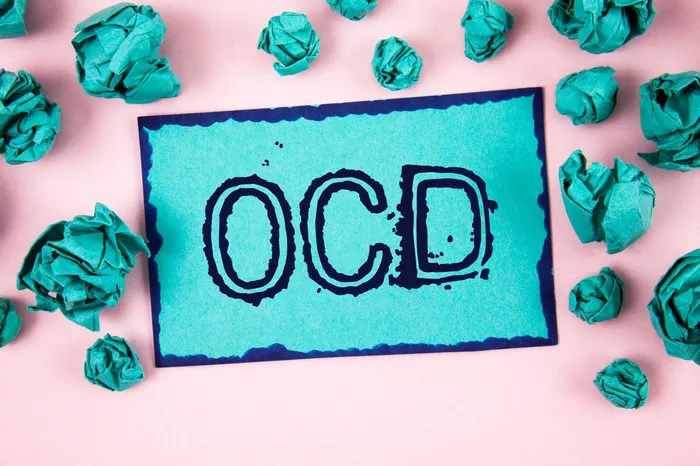Obsessive-compulsive disorder (OCD) is a chronic mental health condition characterized by intrusive thoughts (obsessions) and repetitive behaviors (compulsions). Many people with OCD experience fluctuations in their symptoms, with periods of relative stability followed by increased severity. If your OCD has been getting worse, understanding the underlying causes can help you take control of your condition.
In this article, we explore 5 key reasons your OCD may be worsening and discuss strategies to help you manage your symptoms effectively.
1. Increased Stress and Anxiety
The Link Between Stress and OCD
Stress is a major trigger for OCD symptoms. When you’re under pressure—whether due to work, relationships, financial concerns, or other life stressors—your brain may struggle to manage intrusive thoughts. This can lead to an increase in compulsive behaviors as a way to cope with heightened anxiety.
How Stress Exacerbates OCD Symptoms
Increased Rumination: When stressed, your mind may fixate more on obsessive thoughts, making them feel more overwhelming.
Compulsions as Coping Mechanisms: You may rely more on compulsive rituals to manage stress, reinforcing the OCD cycle.
Sleep Disruptions: High stress can lead to poor sleep, which can, in turn, make it harder to resist compulsive behaviors.
Strategies to Reduce Stress
Practice Relaxation Techniques: Meditation, deep breathing, and progressive muscle relaxation can help reduce overall anxiety.
Engage in Regular Exercise: Physical activity helps lower stress hormones and improve mood.
Improve Time Management: Organizing your day can reduce feelings of being overwhelmed.
2. Avoidance of Proper Treatment
The Role of Therapy and Medication in OCD Management
Many people with OCD avoid or delay seeking treatment due to stigma, fear, or skepticism about its effectiveness. However, without proper intervention, symptoms may worsen over time. Cognitive-behavioral therapy (CBT), particularly exposure and response prevention (ERP), is the gold standard treatment for OCD. In some cases, medication such as selective serotonin reuptake inhibitors (SSRIs) can be helpful.
Signs You May Need Professional Help
Your compulsions are interfering with daily life.
You feel overwhelmed by intrusive thoughts.
You have tried to manage OCD on your own without success.
Steps to Take
Seek a Specialist: A mental health professional with experience in OCD treatment can offer the best guidance.
Consider Medication: If therapy alone isn’t enough, a psychiatrist may recommend medication to help manage symptoms.
Stay Consistent: Regular therapy sessions and medication adherence are crucial for effective treatment.
3. Engaging in Reassurance-Seeking Behavior
How Reassurance Fuels OCD
Seeking reassurance—whether from loved ones, online forums, or repeated self-checking—may seem like a way to ease anxiety, but it often reinforces OCD. When you rely on reassurance, you teach your brain that uncertainty is intolerable, which only strengthens the OCD cycle.
Common Forms of Reassurance-Seeking
Asking others if something is “okay” or “safe.”
Googling symptoms or obsessive thoughts excessively.
Repeating actions or checking behaviors to confirm safety.
Breaking the Reassurance Habit
Delay Seeking Reassurance: If you feel the urge to ask for reassurance, wait 10–15 minutes and see if the anxiety lessens.
Practice Tolerating Uncertainty: Accept that absolute certainty is impossible and work on sitting with discomfort.
Limit Internet Research: Set boundaries on how much time you spend looking up OCD-related fears.
4. Changes in Lifestyle or Routine
How Life Changes Impact OCD
Disruptions to your daily routine—such as moving, changing jobs, or experiencing major life transitions—can make OCD symptoms worse. A stable routine helps provide structure, while changes can lead to uncertainty and increased anxiety.
Factors That Can Worsen OCD
Poor Sleep Habits: Lack of sleep increases anxiety and impairs impulse control.
Dietary Changes: High caffeine or sugar intake may exacerbate anxiety symptoms.
Substance Use: Alcohol or drug use can interfere with OCD treatment and worsen symptoms.
Maintaining Stability Amid Change
Stick to a Regular Sleep Schedule: Aim for 7–9 hours of quality sleep per night.
Eat a Balanced Diet: Reduce caffeine and sugar intake while focusing on whole foods.
Practice Self-Care: Engage in activities that promote mental well-being, such as journaling, meditation, or hobbies.
5. Perfectionism and the Fear of Making Mistakes
The Perfectionism-OCD Connection
Many people with OCD struggle with perfectionism—the belief that everything must be “just right” to avoid disaster. This can manifest in excessive checking, repeating tasks, or avoiding situations where failure is possible.
How Perfectionism Reinforces OCD
Avoidance of Challenges: Fear of imperfection may prevent you from trying new things.
Endless Checking: You may feel compelled to review work or tasks repeatedly.
Inability to Accept “Good Enough”: Striving for perfection can increase anxiety and reinforce compulsions.
Overcoming Perfectionism
Challenge Perfectionist Thoughts: Ask yourself, “What’s the worst that can happen if this isn’t perfect?”
Set Realistic Standards: Accept that mistakes are a normal part of life.
Use Exposure Therapy: Gradually expose yourself to situations where perfection isn’t possible.
Final Thoughts
If your OCD has been getting worse, identifying the underlying reasons can help you take proactive steps toward improvement. Stress, avoidance of treatment, reassurance-seeking, lifestyle changes, and perfectionism all play a role in exacerbating symptoms. By addressing these factors and seeking proper treatment, you can regain control over your OCD and improve your quality of life.
If you’re struggling, remember that professional help is available. Therapy, medication, and self-care strategies can make a significant difference in managing OCD effectively. Don’t hesitate to reach out to a mental health professional for guidance and support.
You Might Be Interested In:
-
8 Tips for OCD Self-Care: Living with Obsessive-Compulsive Disorder
-
10 Things You Didn’t Know About Obsessive-Compulsive Disorder

